- Echanges et mise en réseau
- Connaissance et apprentissage
- Plaidoyer
- Nos thèmes
Il y a un peu plus d’un an, plusieurs représentants de différents gouvernements, ONG et fondations ont entamé un processus relatif à l’Avenir des initiatives pour la santé mondiale (FGHI). Celui-ci vise à simplifier et à harmoniser l’architecture mondiale de la santé. Des pays donateurs et des pays africains en sont à l’origine. L’Agenda de Lusaka constitue un premier jalon.
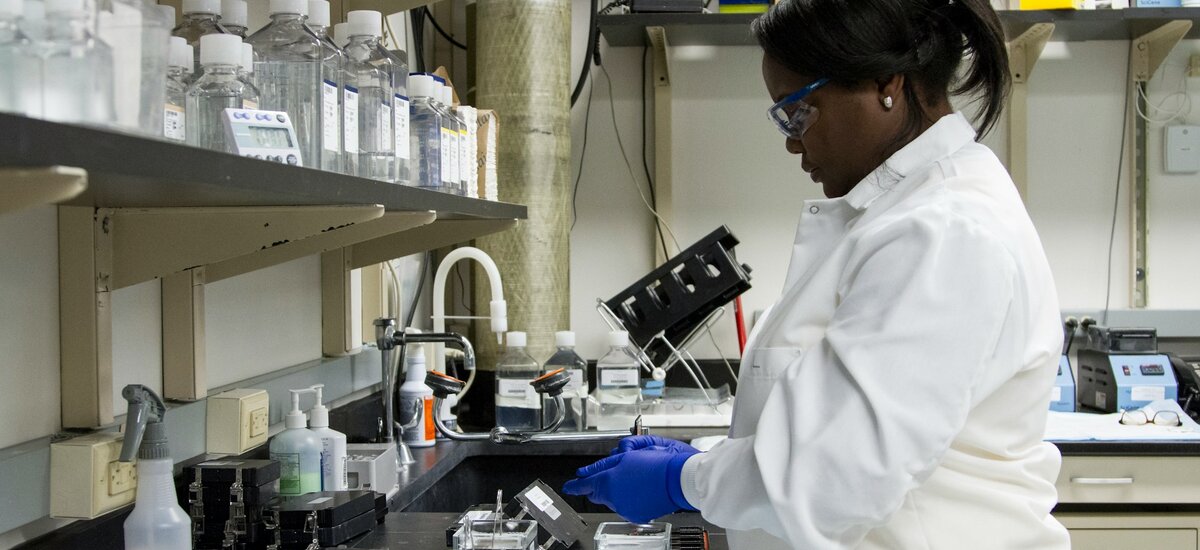
Approuvé en décembre, l’Agenda de Lusaka a permis à l’initiative de franchir une première étape en définissant cinq changements (Key Shifts). Ils doivent ouvrir la voie à un objectif à long terme, à savoir des systèmes de santé financés par les gouvernements eux-mêmes et une couverture sanitaire universelle (CSU) pour tous. Les destinataires directs de l’Agenda sont les initiatives de santé suivantes : Gavi, le Fonds mondial, le Mécanisme de financement mondial pour les femmes, les enfants et les adolescent∙e∙s (GFF). Selon l’Agenda, la Coalition pour les innovations en matière de préparation aux épidémies (CEPI), Unitaid et FIND pourraient également être impliqués.
Les autorités de pilotage de ces organisations souhaitent initier les cinq changements suivants : le renforcement des systèmes de santé par la promotion des soins de santé primaires, l’adoption d’un rôle de promotion des systèmes de santé autofinancés, les efforts conjoints pour une plus grande équité dans les soins de santé, la cohérence stratégique et opérationnelle et, enfin, la coordination de l’agenda de recherche et développement ainsi que du développement des capacités locales de production de produits de santé.
Au regard de l’évolution de la santé globale et de la fragmentation du paysage, l’initiative doit être saluée. Une meilleure collaboration entre ces importantes institutions de santé est fortement souhaitable. C’est notamment le cas pour les fournisseurs de soins de santé des pays à faibles ressources, qui doivent se débattre avec la multitude des processus de candidature, des systèmes d’évaluation et de responsabilité différents de ces organisations.
Toutefois, un certain scepticisme perdure. Ce n’est pas la première tentative de tels processus d’alignement : beaucoup d’entre eux ont échoué. En outre, l’initiative est à considérer à l’aune de la pression croissante exercée sur les finances publiques des pays donateurs et des économies importantes déjà réalisées dans la coopération internationale. Si la FGHI n’est finalement qu’un moyen d’atténuer les programmes d’austérité par rapport aux autres initiatives en matière de santé, elle n’aurait finalement qu’un impact négatif sur la santé globale.
Martin Leschhorn Strebel
Réseau Medicus Mundi Suisse
E-Mail
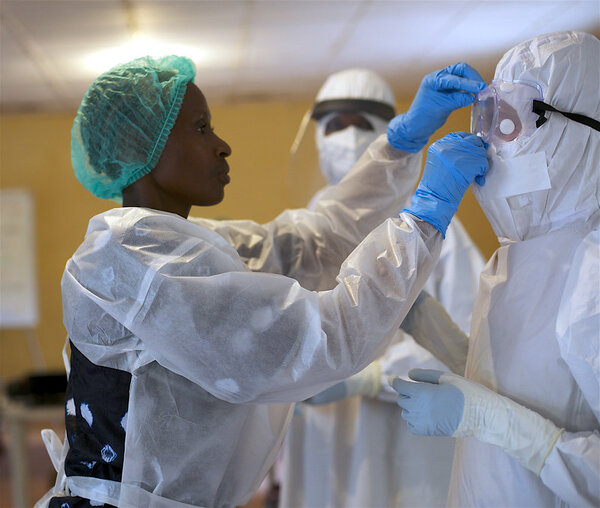
"Over the last two decades, global health initiatives (GHIs) have contributed to enormous progress in protecting lives and improving the health of people globally, while also contributing to global public goods, strengthening global health security, and improving pandemic preparedness and response. In doing so, they have established new models of partnership and alliances that have paved the way for new ways of working and addressing equity. However, important changes in health needs, financing and governance require a renewed and resolved vision for global health to deliver sustainable impact. The need for strong and resilient health systems that can adapt to emerging threats such as climate change and conflict, and concurrently maintain coverage for existing health needs, has never been clearer."
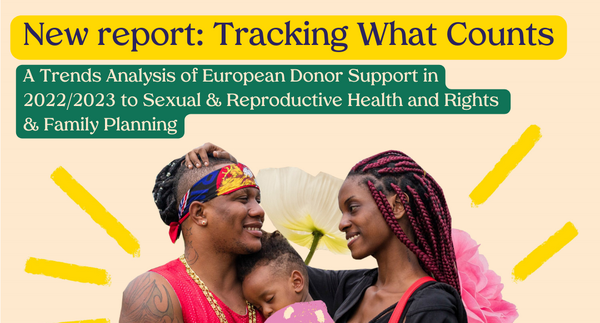
Communiqué de presse le 30 janvier 2024
"Dans le cadre de la coopération internationale, la Suisse fait partie des 10 pays européens qui, en comparaison à l’année précédente, ont augmenté en 2022 leur investissement financier dans le domaine de la santé et des droits sexuels et reproductifs. Selon le rapport « Tracking What Counts » publié aujourd’hui par Countdown 2030 Europe, elle y a en effet dédié 2,1 % de son aide publique au développement, ce qui la place en 8ème position sur un total de 13 pays européens étudiés. Organisation partenaire de Countdown 2030 Europe, SANTÉ SEXUELLE SUISSE (SSCH) salue l’engagement de la Suisse et l’appelle à le renforcer au vu des crises et défis humanitaires actuels."

"Lors de sa séance du 24 janvier 2024, le Conseil de la Croix-Rouge a, à l’unanimité, élu Nora Kronig Romero nouvelle directrice de la Croix-Rouge suisse (CRS). L’actuelle cheffe de la division Affaires internationales de l’Office fédéral de la santé publique (OFSP) devrait prendre ses fonctions au 1er mai 2024. Nora Kronig Romero est actuellement vice-directrice et membre de la direction de l’Office fédéral de la santé publique (OFSP), dont elle gère la division Affaires internationales. A ce titre, elle est chargée de la coopération en matière de santé avec les Etats voisins, l’UE ainsi qu’au sein d’organisations internationales telles que l’Organisation mondiale de la santé (OMS)."

Comme des milliers d’autres mineurs afghans, Hassan*, 17 ans, a été forcé de fuir son pays et a trouvé refuge en Suisse.
"Alors qu’Hassan raconte en farsi ce qu’il a vécu sur la route de l’exil, l’interprète doit parfois ravaler ses larmes avant de pouvoir traduire les paroles du jeune homme. Tout a commencé à l’été 2021. Ce dimanche 15 août, les talibans prennent le pouvoir en Afghanistan. Hassan a alors 15 ans. Avec sa famille, il tente de rejoindre Kaboul. «Nous sommes partis en voiture, avec tous nos papiers. Nous pensions pouvoir prendre un avion pour les Etats-Unis.» Après tout, son père a travaillé pour le gouvernement."
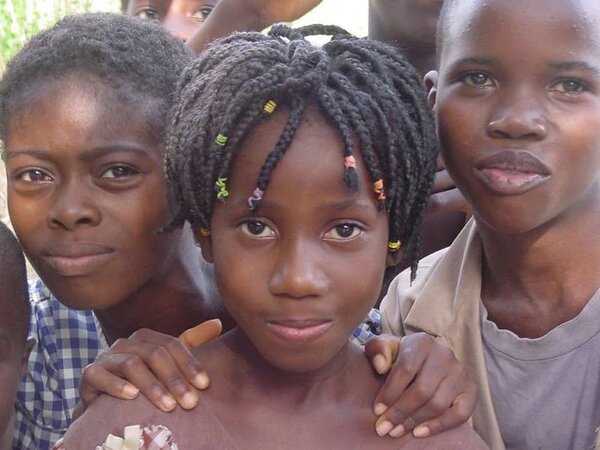
Concerted Efforts to Tackle Poverty-Related Diseases. By Jürg Utzinger
"Today, we commemorate World NTD Day for the fourth time. In this article, I look back over the past 25 years and highlight key developments that have brought neglected tropical diseases (NTDs) out of the shadows and into the forefront of global health. And I look ahead in the spirit of this year’s theme: “Unite. Act. Eliminate”.
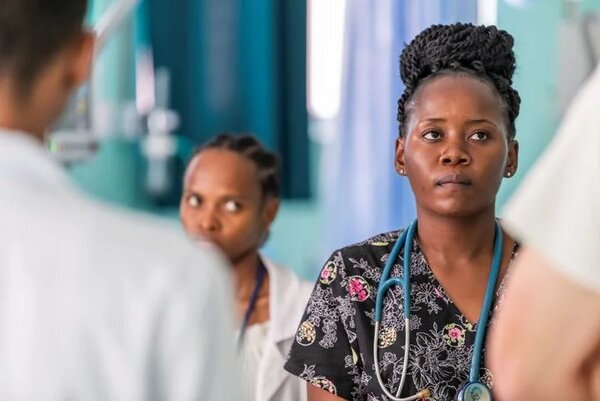
"Cervical cancer is the leading cause of cancer related deaths among women in sub-Saharan Africa. Women living with the human immunodeficiency virus (HIV) are six times more likely to develop cervical cancer than those who are HIV negative. To tackle this issue, Swiss TPH together with partners developed the Cervical Cancer Prevention and Care Cascade – a framework to enhance cervical cancer screening programmes for women living with HIV in sub-Saharan Africa."
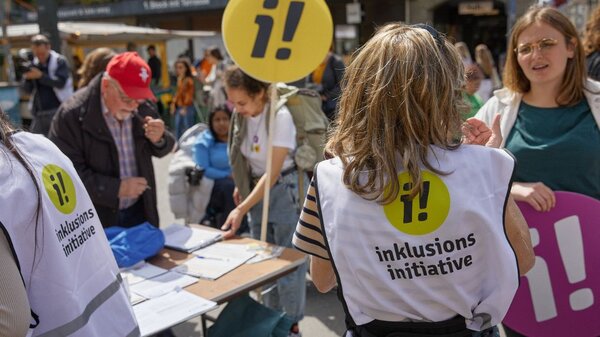
"Handicap International soutient “l’initiative pour l’inclusion” pour construire une Suisse sans discrimination. Rejoignez-nous dans cette démarche collective et signez l'initiative. Ensemble, faisons de la Suisse un pays où chacun a la possibilité de vivre pleinement, indépendamment de son handicap, pour créer une société plus juste et inclusive."

"En 2023, nous avons continué notre engagement auprès des plus vulnérables. Cette année, vos dons ont permis d’accompagner plus de 2,5 millions de personnes. Plus de 500’000 personnes ont reçu des soins de rééducation. Plus de 400’000 enfants handicapées ont repris le chemin de l’école grâce à vous. 4 millions de mètres carrés de terre ont été rendus aux populations."
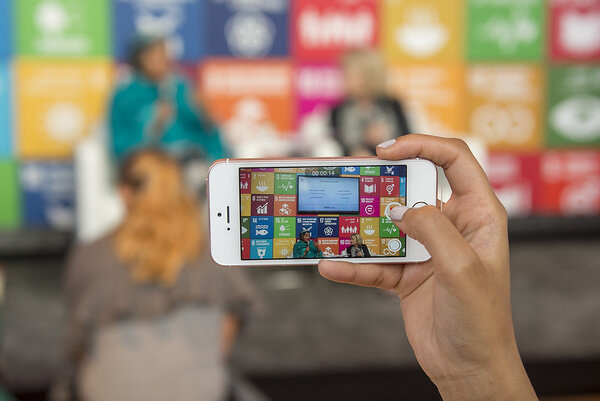
Une analyse de Nina Vladović, EPER ; Lisa Joanne Bissegger, Frieda – l’0rganisation de paix féministe et Martin Leschhorn Strebel, Medicus Mundi Suisse
"Le débat sur la décolonisation concerne aussi la mise en œuvre de l’Agenda 2030 : les ODD doivent contribuer ensemble à améliorer l’équité et de l’égalité des chances partout dans le monde. Mais aucun d’entre eux ne peut être atteint si la réduction des inégalités (ODD) n’est pas absolument prioritaire dans toutes les activités. L’impératif de décolonisation doit donc être au cœur de l’Agenda 2030. Est-ce vraiment le cas ?"
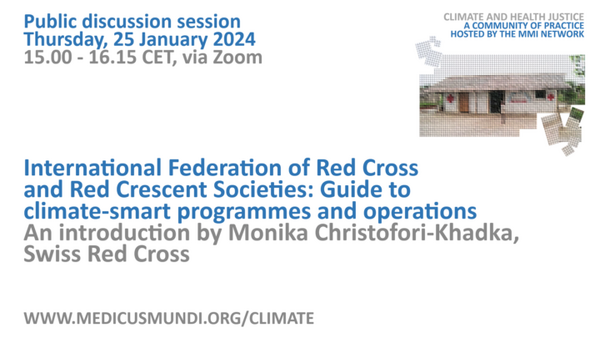
Recording of the session
“Climate-smart means using climate information across timescales in designing and/or adjusting all our programmes and operations. In doing so, programmes and operations ensure that, at a minimum, they do not place people at increased risk in the future considering likely new climate extremes and growing vulnerabilities. In addition, this approach offers the initial steps in the Climate Action Journey for the National Societies to identify locally led adaptation needs and support communities to anticipate, absorb and adapt to climate change.” (quoted from IFRC website). At this open discussion meeting, Monika Christophori-Khadka, Swiss Red Cross, introduced the IFRC Guide to climate-smart programming and operations, its tools and application in practice."
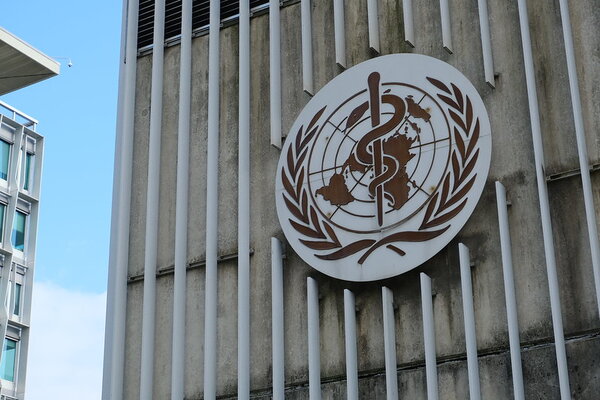
Le Conseil exécutif chargé de préparer l'Assemblée mondiale de la santé annuelle qui aura lieu en mai prochain s'est réuni et a mis en évidence les multiples défis auxquels sont confrontés l'Organisation mondiale de la santé et ses membres.
Un sujet clé, qui a de nouveau provoqué des tensions et continue de nier les principes d'égalité et de justice, est la négociation du traité sur les pandémies, qui doit être finalisé en mai. Le Dr Tedros a appelé les pays à redoubler d'efforts pour trouver des solutions qui permettent à tous de vivre. Alors que le Sud global demande le partage des connaissances et des ressources, le Nord global souhaite la protection du cadre existant en matière de propriété intellectuelle et la préservation des intérêts de l'industrie pharmaceutique. De nombreux thèmes discutés ont été marqués par la question et la lutte pour plus de justice. Le changement climatique, l'augmentation de la dette publique, l'accroissement de la pauvreté dans le monde, la mauvaise mise en œuvre d'une couverture sanitaire universelle (Universal Health Coverage) et la confrontation permanente d'environ 2 milliards de personnes avec des dépenses de santé catastrophiques exigent de nouvelles stratégies. A cela s'ajoutent le sous-financement de l'OMS et la crainte que des partenariats avec des organisations externes, comme Gavi ou la Fondation Gates, soient nécessaires et conduisent à une influence encore plus grande des non-membres sur les priorités de l'OMS. L'étiquetage du droit à la santé sexuelle et reproductive en tant que question politique, ainsi que les conflits autour de Gaza et la charge de travail croissante de l'OMS dans les situations d'urgence humanitaire, ont également donné lieu à des débats houleux.

Lors de la réunion du Conseil exécutif de l'OMS en janvier 2024, la mise en œuvre de la couverture sanitaire universelle (CSU) a été un autre thème majeur. Malgré des résultats stagnants, surtout dans le domaine du financement, l'OMS et ses États membres s'en tiennent à la stratégie actuelle qui, selon PHM (Peoples's Health Movement), s'est avérée défectueuse et ne permettra pas d'atteindre l'objectif souhaité. Ce sont surtout les structures de soins publiques qui font défaut et c'est ainsi que l'introduction des modèles d'assurance maladie profite majoritairement aux prestataires de services privés. Un autre problème est que l'introduction de la "Health Impact Investment Platform", destinée à fournir des crédits pour la mise en place de soins de santé primaires dans les pays à faible et moyen revenus, alourdit encore le poids de la dette de ces pays. Or, PHM est convaincu que ce dont ces pays ont besoin de la part des membres de l'OMS, c'est d'un allègement de la dette qui leur donnera une plus grande marge de manœuvre pour renforcer les soins de santé primaires à leurs propres conditions.
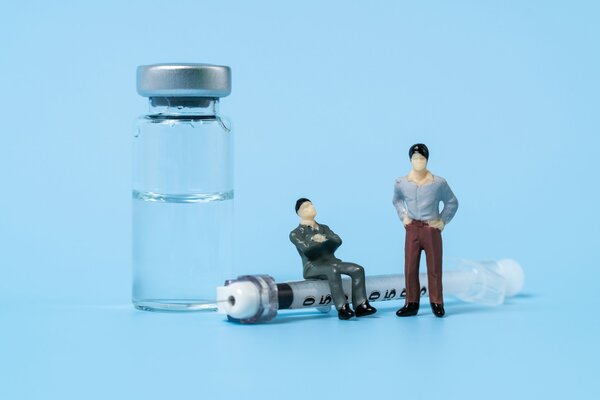
La stratégie de l'UE met explicitement l'accent sur l'objectif d'un accès équitable à des produits de santé abordables et de qualité dans le monde entier et sur le soutien à la production locale de médicaments. Mais dans la pratique, selon la critique d’Oxfam, les pays de l'UE bloquent toutes les tentatives de l'Organisation mondiale de la santé (OMS) et de l'Organisation mondiale du commerce (OMC) de partager les technologies de la santé avec les producteurs des pays à faible et moyen revenus . L'ONG a une nouvelle fois demandé à l'UE de ne plus passer sous silence la question des droits de brevet et de fermer les yeux sur l'inégalité d'accès aux vaccins et aux médicaments, mais de placer la santé au-dessus des intérêts de Big Pharma.

"The Council today approved conclusions on the 'EU Global Health Strategy: Better health for all in a changing world', in which it reaffirms the leading role of the EU and its member states in advancing global health. The Council acknowledges that physical and mental health is a human right and that health is a prerequisite for sustainable development. The Council welcomes the communication of the European Commission on the EU Global Health Strategy and further emphasises that the EU and its member states must play a leading role in ensuring that global health remains at the top of the international agenda. Global health requires effective multilateralism and inclusive multistakeholder partnerships, and is an essential pillar of EU external policy."
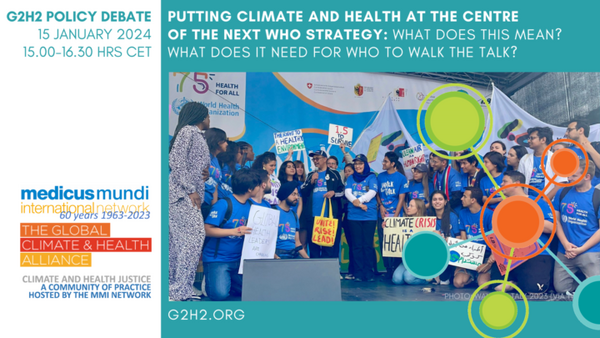
Recording of the session: G2H2 policy debate, 15 January 2024 organized by the MMI Network and partners
"In 2024, climate change and health will be prominently on the agenda of the WHO governing bodies, with a resolution proposed by the WHO member states Core Group Climate Change and Health, and with the WHO secretariat’s proposal to put the “response to climate change, the greatest health threat of the 21st century” at the centre of its draft strategy (General Programme of Work) for the next years, as one of six strategic objectives."
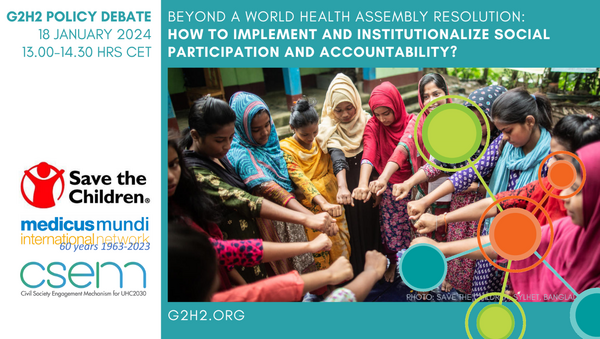
Recording of the session: G2H2 policy debate, 16 January 2024 organized by the MMI Network and partners
"Since the launch of the WHO Handbook on Social Participation for UHC in 2021, there has been growing political leadership among WHO Member States on social participation, leading to the proposal of a resolution to be adopted by the 77th World Health Assembly in May 2024. The agenda of social participation – and social accountability – is strongly supported by a range of civil society actors, including those who engaged in dialogues with the WHO Director General in 2021 and continue to participate in consultations with the Member State co-chairs of the proposed resolution, Slovenia and Thailand."

"The Coronavirus disease (COVID-19) pandemic has revealed the fragility of pre-crisis African health systems, in which too little was invested over the past decades. Yet, development assistance for health (DAH) more than doubled between 2000 and 2020, raising questions about the role and effectiveness of DAH in triggering and sustaining health systems investments. This paper analyses the inter-regional variations and trends of DAH in Africa in relation to some key indicators of health system financing and service delivery performance. (...) We conclude that the current architecture of official development assistance (ODA) is no longer fit for purpose. It requires urgent transformation to place countries at the centre of its use."
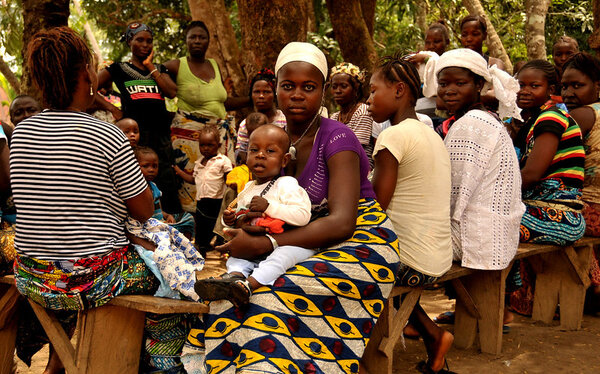
The 13 research articles, innovation and practice reports and commentaries presented in this supplement provide concrete examples, ideas and reflections that add to our understanding of external assistance for health.
"As we revisited our April 2022 announcement of this special issue on Rethinking External Assistance for Health, we were struck by the increasing relevance of the themes that were raised (Shroff et al., 2022; HPP call for abstracts 2022). We are no longer speaking about the potential effects of the economic crisis triggered by COVID-19, but rather how countries and households are now experiencing the realities of fiscal tightening, increased sovereign debt, inflation and shifting geopolitics (International Monetary Fund, 2023). Reflecting these pressures and changing dynamics, questions around the functions of external assistance for health and the forms it takes are high on the agendas of both donors and recipient countries."

"Wemos, Health Action International (HAI), Innovarte and Knowledge Ecology International (KEI) are happy and proud to announce that they are forming a consortium for the next four years to improve global access to medical innovations. The project, called ‘Enabling Access: Medical Innovations for All’, focuses on creating an enabling environment to increase access to medicines, particularly for low- and middle-income countries. The project is funded by Unitaid. - Lack of access to many medicines, for example for hepatitis C, HIV and tuberculosis, has been a major problem for low- and middle-income countries for decades."

"2023 was an important year for public health in Africa and a busy year for Africa CDC. Most notably, last year saw Africa CDC take steps in effecting its status as an autonomous institution of the African Union (AU), which ushered in greater operational independence, a more robust governance structure with the inclusion of a Committee of Heads of State and Government, an expanded membership of its governing board, and the additional mandate of declaring public health emergencies of continental security. Furthermore, 2023 marked the appointment of the first Director-General of Africa CDC for a four-year term. In this blog, we detail four notable areas of work of the Africa CDC in 2023 and propose four areas of focus for 2024."
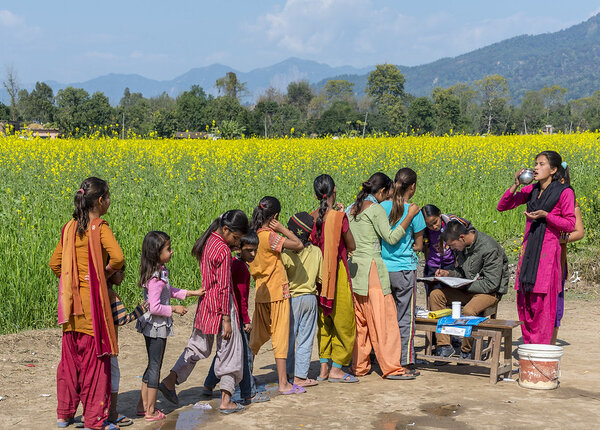
"On Dec 15, 2023, WHO updated its list of neglected tropical diseases (NTDs) to add noma. NTDs are conditions that are mostly prevalent in low-income and middle-income countries and that disproportionately affect women and children. The inclusion of noma on the list of NTDs is long overdue, and marks the first step in prioritising the disease in treatment, policy, funding, and research. (...) Without treatment, noma is fatal in approximately 85% of cases (due to sepsis or severe dehydration and malnutrition) but, if detected early, it can be treated with antibiotics."
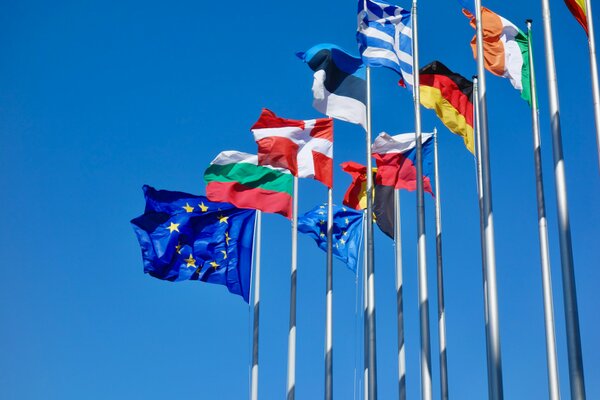
"More than 40 former heads of state and leading global health advocates have urged world leaders not to waste a unique opportunity to save millions of lives as negotiations stall on a new global pandemic accord. In an open letter, published four years after the World Health Organization declared covid-19 a global health emergency, the 40 influential figures warned that the world’s leaders were looking increasingly unlikely to agree on a new, legally binding agreement intended to prevent and prepare for a future pandemic."
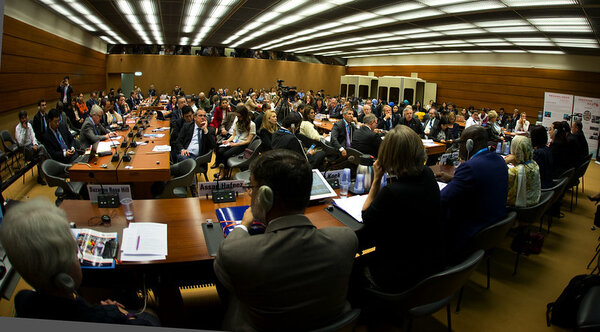
Une alliance d'Etats membres conservateurs de l'OMS et d'organisations américaines de droite a stoppé la procédure d'admission d'une organisation impliquée en santé reproductive au sein de l'Organisation mondiale de la santé (OMS). L'OMS peut établir des "relations officielles" avec des actrices et acteurs non gouvernementaux qui s'engagent durablement et dans l'intérêt de l'OMS. Dans le cas de l'organisation "Center for Reproductive Rights (CRR)", qui s'engage aux Etats-Unis, en Afrique, en Asie et en Amérique latine pour l'accès des femmes et des filles aux services en santé reproductive, cette admission a été stoppée dans un premier temps en raison des objections massives. On a menacé l'OMS d'un arrêt de financement sous un futur président américain. Outre la Russie et le Yémen, 47 pays africains ont fait savoir que l'OMS ne respecterait pas la culture et les valeurs de ses États membres en accueillant cette organisation. Le Mexique, quant à lui, a averti que l'autorité du secrétariat de l'OMS serait sapée par cette action.
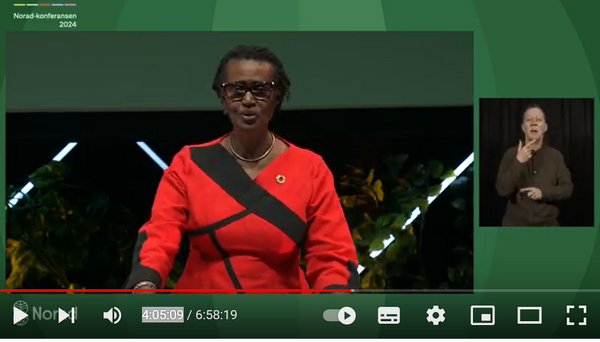
"OSLO/GENEVA, 1 February 2024—At a conference hosted in Oslo by the Norwegian Agency for Development Cooperation (Norad), UNAIDS Executive Director, Winnie Byanyima, has made an impassioned call to all international partners to support women and girls from marginalized communities at the frontlines of the defence of human rights. Only by ensuring that the rights of everyone are protected can the world ensure that the health of everyone is protected, and that the Sustainable Development Goals are achieved."

In Deutschland wird das unter dem Namen Prep bekannte HIV-Mittel knapp. Die Aidshilfe spricht von "fatalen Folgen".
"In Deutschland ist ein von Zehntausenden Menschen genutztes Medikament zum Schutz vor einer HIV-Infektion derzeit nicht ausreichend verfügbar. Mehrere Hersteller der sogenannten Präexpositionsprophylaxe, kurz Prep, haben Lieferengpässe gemeldet, wie das Bundesinstitut für Arzneimittel und Medizinprodukte (BfArM) mitteilte. Seit dem Jahreswechsel zeige sich "eine Entwicklung hin zu einer eingeschränkten Verfügbarkeit" des Medikaments."
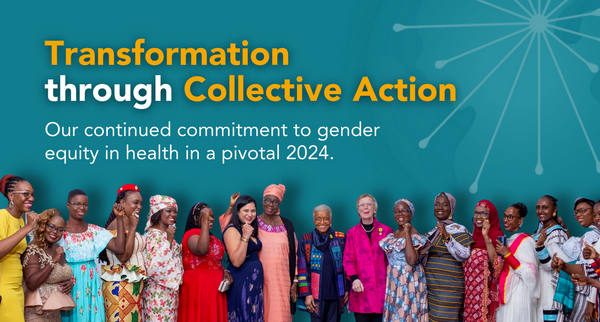
Our continued commitment to gender equity in health in a pivotal 2024
"As we kick off this new year, we are on the march to the celebration of 10 years since Women in Global Health launched in 2015. What an inspiring, unstoppable journey it has been. It is a privilege to be part of a movement as wide and powerful as ours. Looking at everything we have achieved in less than 10 years, I know there are still mountains to climb and when we get there, we will see some spectacular wins ahead for gender equity in global health. The power of our movement is demonstrated by our collective action and by the number of women from all regions who feel inspired to join us. We crossed a historic milestone of having 50 Chapters around the world in 2023, welcoming 14 new chapters last year, from Singapore to Benin, from Rwanda to Austria, from Argentina to Iraq."
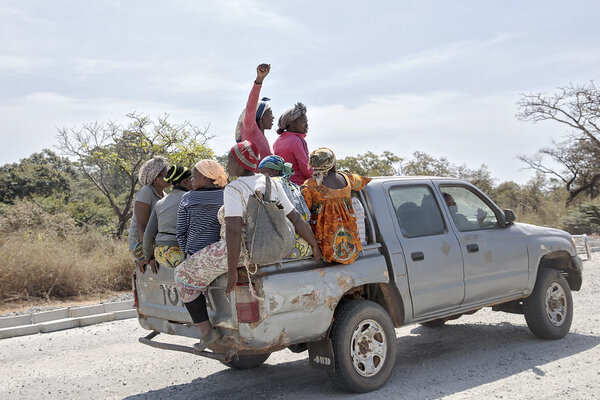
Later diagnoses and lack of data mean women spend 25% longer than men in poor health, World Economic Forum report finds
"Closing the gender health gap could add at least $1tn (£790bn) a year to the global economy by 2040, according to the first report to quantify the economic opportunities of investing in women’s wellbeing. Every $1 invested to improve women’s health could generate $3 for the economy as quality of life improves and women are able to actively participate in the workforce. It could lead to an extra seven healthy days each year for every woman, or more than 500 days over a lifetime."

Researchers estimated likely number of rape-related pregnancies in 14 states with near-total abortion bans since Dobbs ruling
"Nearly 65,000 rape-related pregnancies likely occurred in the 14 US states with near-total abortion bans following the US supreme court’s 2022 Dobbs decision – yet just 10 legal abortions are performed monthly on average in these states, researchers found in a new analysis. The data demonstrates that abortion bans likely make it impossible for most victims of rape to obtain abortions in their home states, even for the minority of people who live in states with exemptions for rape, researchers said."
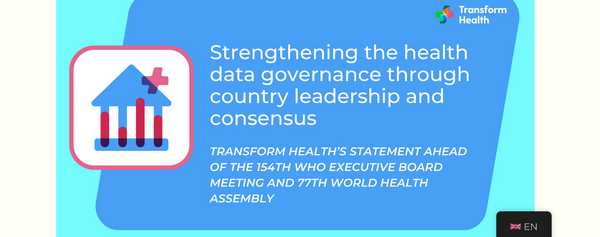
Strengthening the health data governance through country leadership and consensus
"Transform Health and partners are calling for stronger health data governance regulation. Toward this, we are urging governments to develop and endorse a set of minimum components for health data governance regulations. Through their endorsement as part of a World Health Assembly resolution, this would help establish that consensus, alignment and agreement across countries around what is needed. Importantly, they would serve as a resource and benchmark for governments as they strengthen their national approaches, whilst also establishing a level of harmonisation across countries, which is important to facilitate cross-border data sharing with the needed protections in place."

World Health Organization says lower-income countries will record the biggest proportional increases
"Global cancer cases are predicted to rise by more than 75% by 2050, according to the World Health Organization. Latest figures from the WHO’s cancer arm, the International Agency for Research on Cancer, makes plain the growing burden of cancer, rising from 14.1 million new cases and 8.2 million deaths worldwide in 2012 to 20 million new cases and 9.7 million deaths a decade later. The IARC predicts there will be more than 35 million new cancer cases by 2050, an increase of 77% from 2022 levels, and that deaths will have nearly doubled since 2012 to more than 18 million."
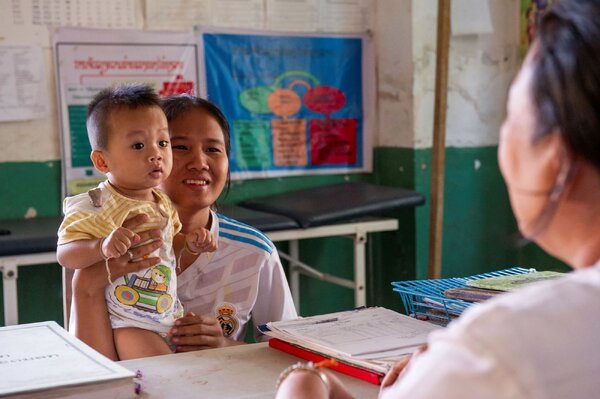
Swiss TPH "Improving access to healthcare in low- and middle-income countries (LMICs) is a global issue. On 8 February 2024, Swiss TPH brings together experts and key players from the pharmaceutical industry, academia and Product Development Partnerships to assess current strategies and progress and to foster synergies between partners for more effective product development, licensing and implementation. Join us for this multidisciplinary networking event organised in collaboration with Healhcare Dialogues."

Graduate Institute - Global Health Centre "Randi Isaksen, news-anchor at RECOVERY CHANNEL, struggles to help her sister in a broken mental health system. Told through dueling prisms of documentary and narrative storytelling, Filmmaker Ellen Ugelstad unravels the complex issues of mental health, human rights and the use of coercion. Mental health is a growing priority in global health policy and human rights discussions. This one-night-only film screening will dissect this intersection and address the human rights violations witnessed in today's mental health care system and practices."
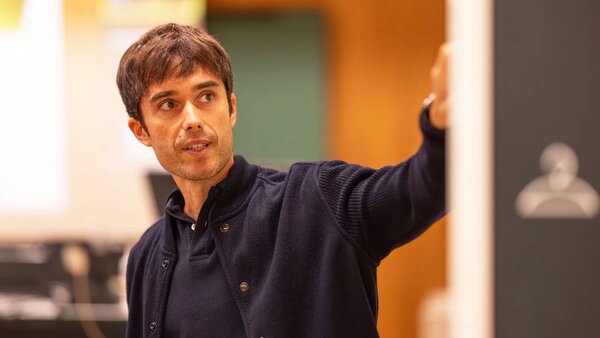
Swiss TPH The course provides a short introduction to key concepts of health economics, such as public goods, externalities and supply and demand, as applied to health and the health sector. Based on the WHO health system performance framework, the course then discusses health financing – its functions, financing systems, payment mechanisms, Overseas Development Assistance, the effect of health system organisation on financing, measuring performance, digitization in health financing and how financing relates to other building blocks of a health system. These factors are used to evaluate the strengths and weaknesses of a country’s level and structure of health financing.

Medicus Mundi Suisse Collectivement, les jeunes ont des besoins urgents et considérables en matière de politiques et de programmes qui garantissent l'amélioration de de leur santé sexuelle et reproductive et les droits qui y sont associés. Il existe actuellement de nombreuses initiatives et projets innovants visant à l’améliorer et nous voulons en entendre parler.
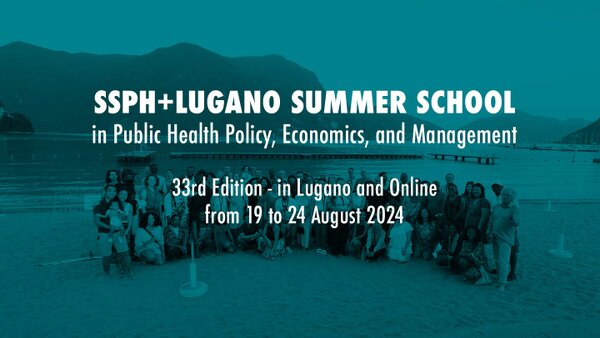
SSPH+ Lugano Summer School At the SSPH+ Lugano Summer School in Public Health Policy, Economics, and Management practitioners, researchers, and graduate students come together from all over the world for a unique learning experience focused on public health impact. The education obtained and networks created serve as an opportunity to reduce and prevent the gap between public health theory and practice. This year, we will gather in Lugano and online from 19 to 24 August 2024 offering 16 courses, 2 plenaries and several networking events. Each highly interactive course focuses on mutual learning for change and uses an active and engaged teaching style to help participants reflect on, develop, and expand transformational ideas. Information about fees, participation modality, and registration are available on our website: https://www.ssph-lugano-summerschool.ch/enroll. If you have any further question, you can contact us at info@ssph-lugano-summerschool.ch